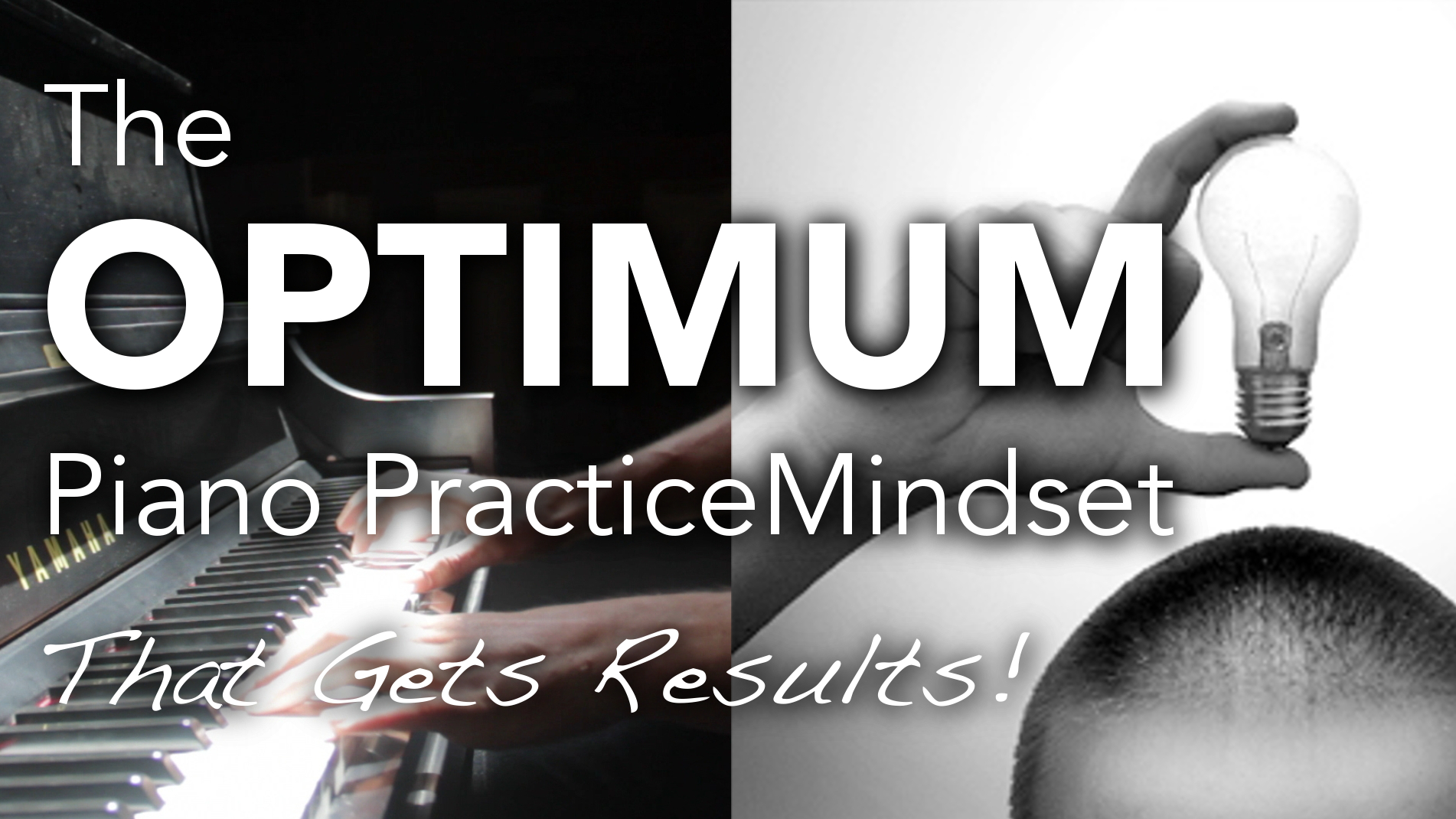Today I want to talk a little about the mindset you have when you’re practicing and how to take it to the next level. I really think this is the key to going from slow improvement to making rapid, consistent gains in your piano ability. And to develop this mindset I think we can learn a lot from a group of people who are obsessed with making gains: Athletes.
What Can We Learn From Athletes?
Back in high school, I was into sports the way I was into piano now. I would practice, train, lift weights, and develop workout programs to try to increase my max lifts in the shortest amount of time possible. And this is the “normal,” or “default” mindset for athletes. Since sports is a competition, athletes are always looking for a faster way to improve, a better training plan, or a more efficient way to get faster times and lift heavier weights.
When athletes train, they have a plan specifically designed to meet certain goals. A track sprinter’s goal might be “Run the 400 meter dash in under 52 seconds.” Then he (or his coach) would develop a plan to reach the goal. It would involve interval training, lifting weights, and sprint technique. And more importantly, each workout would be specific, organized, and laser focused on trying to accomplish these goals.
Athletes go to the gym with a plan. They don’t wake up and think, “Hmmm, I think I’ll work out today” and run around the gym doing random exercises. Have you ever done that with piano? Have you ever just woke up with “Hmmm, I think I’ll practice today,” and sat down on the piano and skipped around between random parts of your pieces without focusing and without really getting anything done? I have, and they are some of the most non-productive hours of my day.
But what do the good athletes do. They go into the gym with a specific plan in mind. It might look something like this:
Back Squats: 5 x 5 (5 sets of 5 repetitions)
Shoulder Press: 5 x 5
Planks: 3 x 1 Minute
Pull Ups: 3 x 8
Each of these exercises is chosen to reach a goal. Back squats increase leg strength to increase stride length. Shoulder press increases shoulder strength for a more powerful arm swing. Planks increase core strength to maintain great form throughout the entire race. All of these lead to a faster running speed and will help the athlete reach his or her goal.
How Does This Transition To Piano?
What if we treated piano the same way? What if we had a “training plan” for each practice session? For example, if we had a goal like “Play an E Major Scale at 138 beats per minute.” Our “workout plan” might look something like this:
Rhythms: 4 reps each Rhythm
Metronome Ramp Up: 4 reps at each tempo, starting at 70 BPM
Added Notes: 2 reps of each note
(note: the above practice strategies are outlined in my book “Supercharge Your Piano Practice,” you can find it here)
Now this is a piano practice mindset that works. One that gets results! If you’re not doing something like this already for your practicing, start doing it, I promise you you’ll improve so much faster. Not just for scales, but for all aspects of piano and all parts of your pieces.
But that’s not “fun”!! Or is it…
Why can’t this way of thinking be the default for piano players? For some reason, the default mode of practicing for a lot of piano players is to “have fun” when practicing. This usually just means futzing around on the piano and making no real improvement.
I think sometimes we mistake “fun” for “easy.” To me, futzing around on the piano is fun the same way that watching TV is fun. It provides some immediate, superficial entertainment, but at the end of the day you don’t feel accomplished. But when you get up from the piano after a legit practice session you feel a deeper satisfaction that you’ve bettered yourself as a pianist and you’re on track to reaching your goals.
My college piano teacher once said, “Fun is when you’re good at something.” I couldn’t agree more. Seeing yourself improve and get better week by week is fun. Looking back and reflecting on what you could play a year ago and the huge improvement to what you’re playing now, that’s fun.
So try this mindset out, let me know how it works for you. Feel free to leave a comment and let me know what you think.




It cannot be stressed enough though that the optimum path towards maximum achievement is always through persistent training.